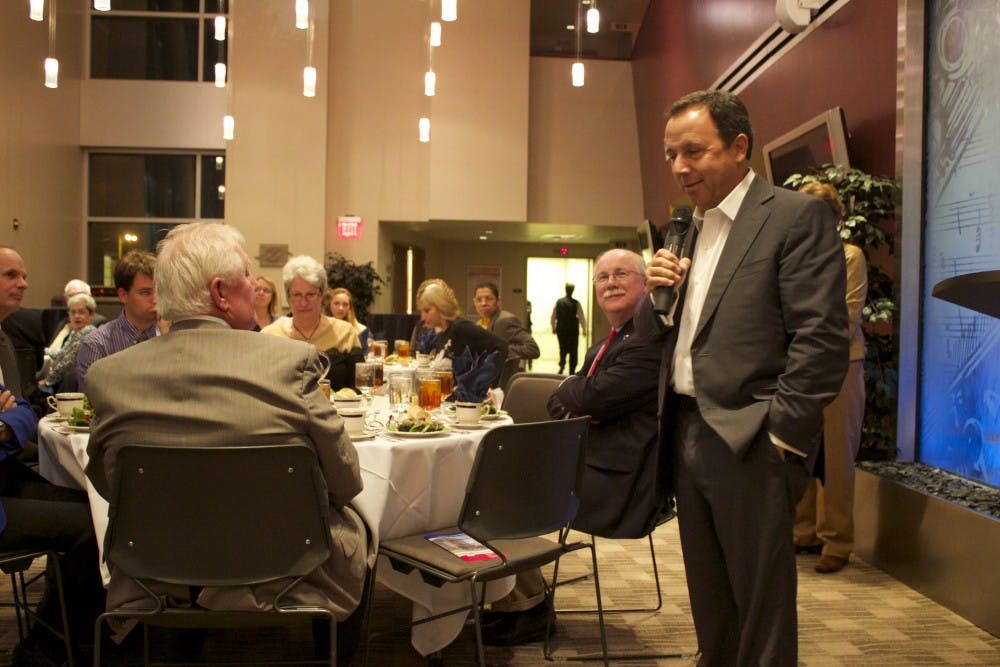Ron Suskind is known as a Pulitzer Prize-winning journalist, as well as an author of several books on the American government, but he did not stop at Shippensburg University to talk solely about any of these topics. His family, more specifically his son, Owen, was the reason he walked onto the H. Ric Luhrs Peforming Arts Centerstage last Wednesday.
Suskind presented a lecture titled, “Life, Animated,” which is the title of his recently published book. The book sheds light on his son, Owen, who is autistic. The lecture was not just explaining how Suskind and his family have raised Owen through the years, it was about finding a new way to communicate with Owen.
On Wednesday, Suskind walked out in a simple gray suit with no tie and white button up shirt, just first trying to get some laughs from the audience. He then went into the background of how he got his passion for writing from a letter his father wrote before he passed away when Suskind was 14. From there, Suskind decided he wanted to make a difference as a journalist.
After getting married and starting a family, Suskind moved from Boston to Washington, D.C., for the Wall Street Journal, as the senior national affairs writer. At this point, both his two sons, Walter and Owen, were young — Owen was only two.
This was when Owen started to show signs of regressive development. After a few weeks, Suskind and his wife decided to go to the doctor and then found out Owen had regressive autism. Suskind also found out that 40 percent of these children never get theirspeech back.
Suskind and his wife had no idea what to do, especially since Owen was only speaking one gibberish word. They were convinced they lost him. The film “The Little Mermaid” proved to be a turning point for the Suskinds. Owen kept rewinding the scene where Ariel trades her voice to Ursula, more specifically the line “just your voice.” Suskind’s wife recognized Owen repeating this line. From there, the family discovered that Disney movies were a way to communicate with Owen.
After that moment, Suskind explained that his life became, “interviewing presidents by day and performing for my son at night.” Because of this, Owen got his voice back and his family found a way to communicate and learn more about him.
Many faces in the Luhrs crowd on Wednesday were not just the parents of children with autism, or even people who had followed Suskind’s career — there were many students present. The lecture was part of SU’s “Proteus Lecture Series,” and the theme was deviancy. Suskind hit this point many times and tried to emphasize it to the students.
After Suskind’s speech, there was a question and answer period. During that session, Suskind explained that he wants readers of “Life, Animated” to recognize that children like Owen have special strengths.
While these gifts may be hidden, these children are like anyone who has a visible physical disadvantage; there is strength somewhere else that is equal to the weakness.
After his lecture, Suskind stayed to sign books and chat with fans. Suskind explained that he came to Shippensburg because smaller schools like SU are more lenient in teaching style, which is where the real learning happens.




The Slate welcomes thoughtful discussion on all of our stories, but please keep comments civil and on-topic. Read our full guidelines here.